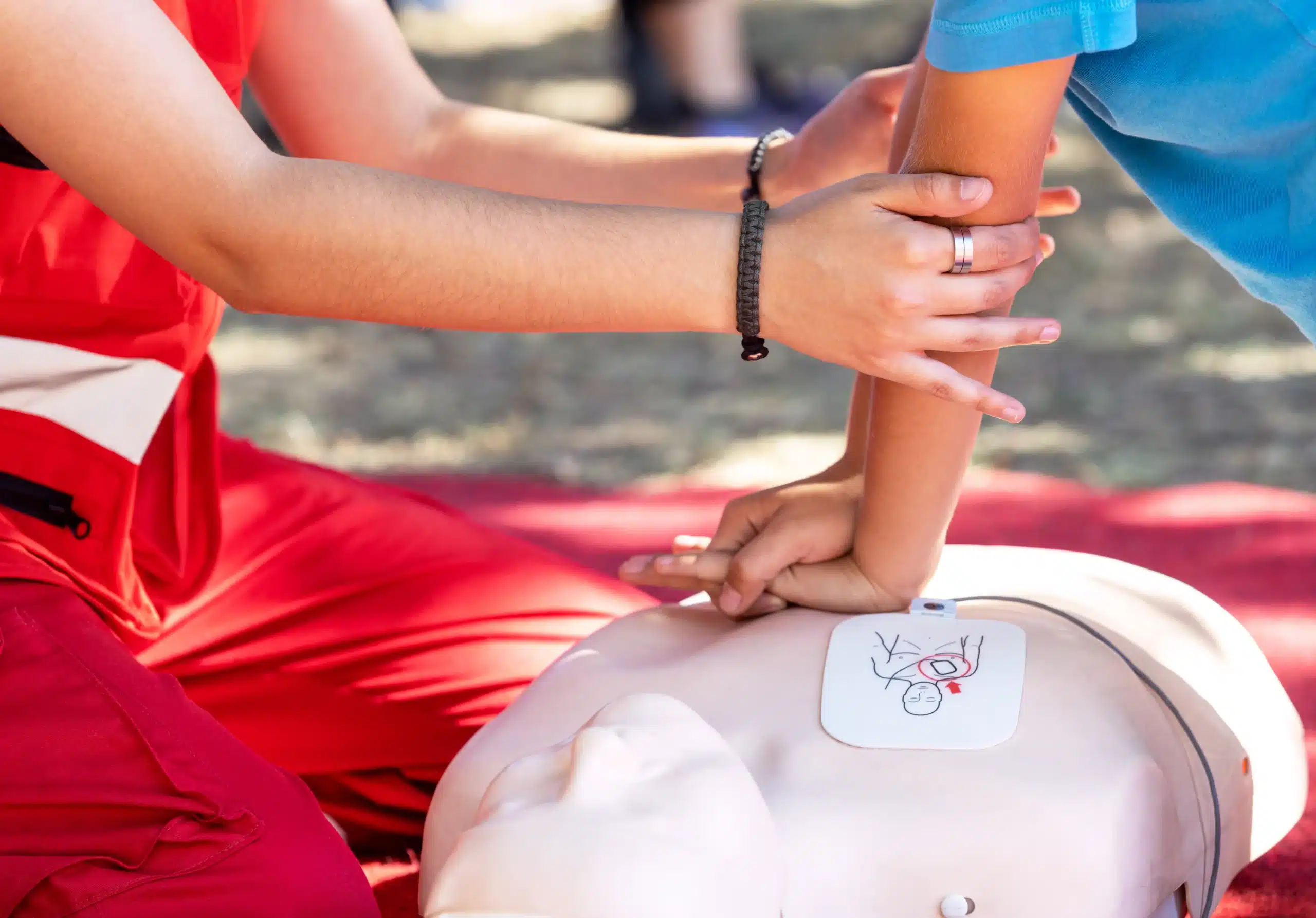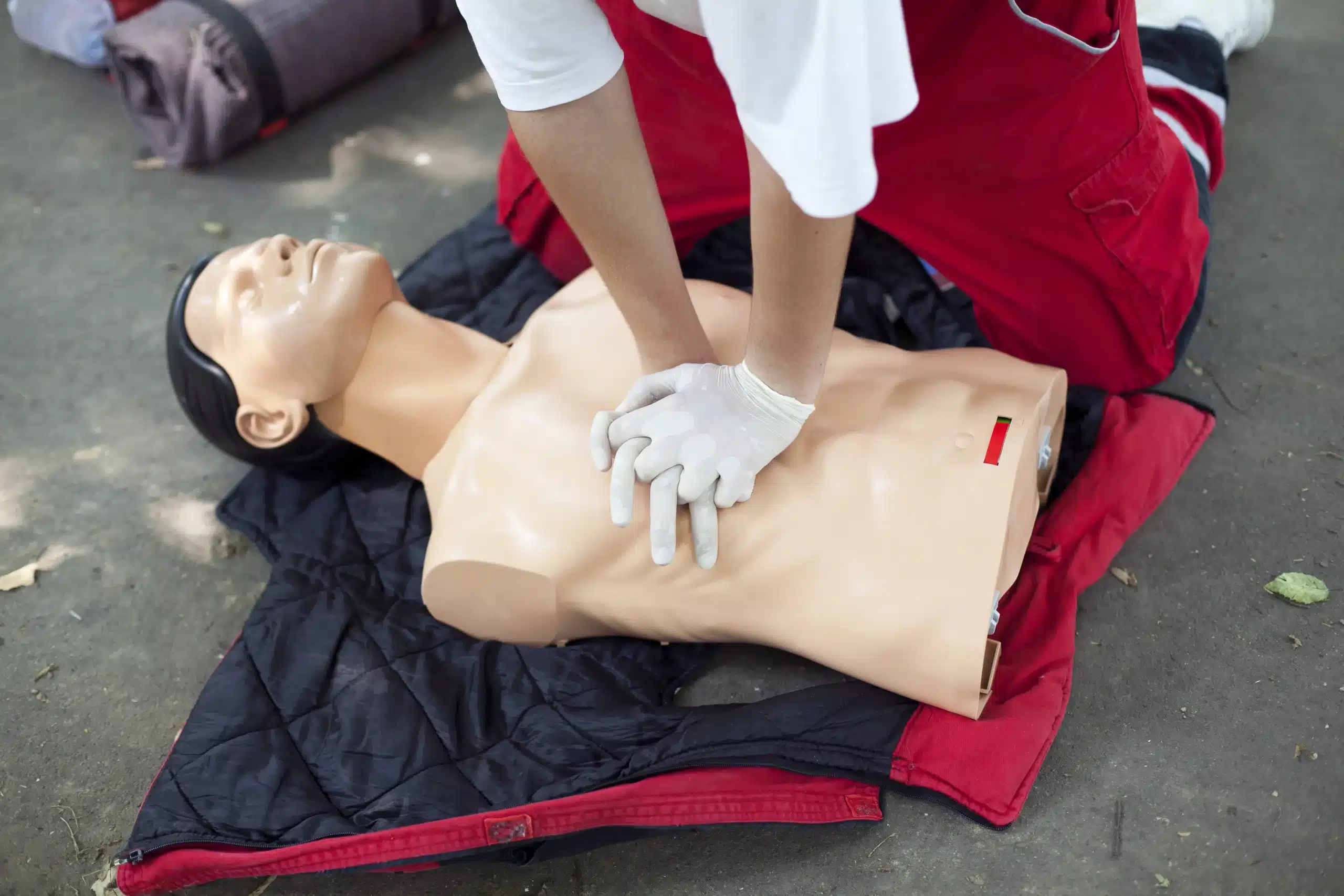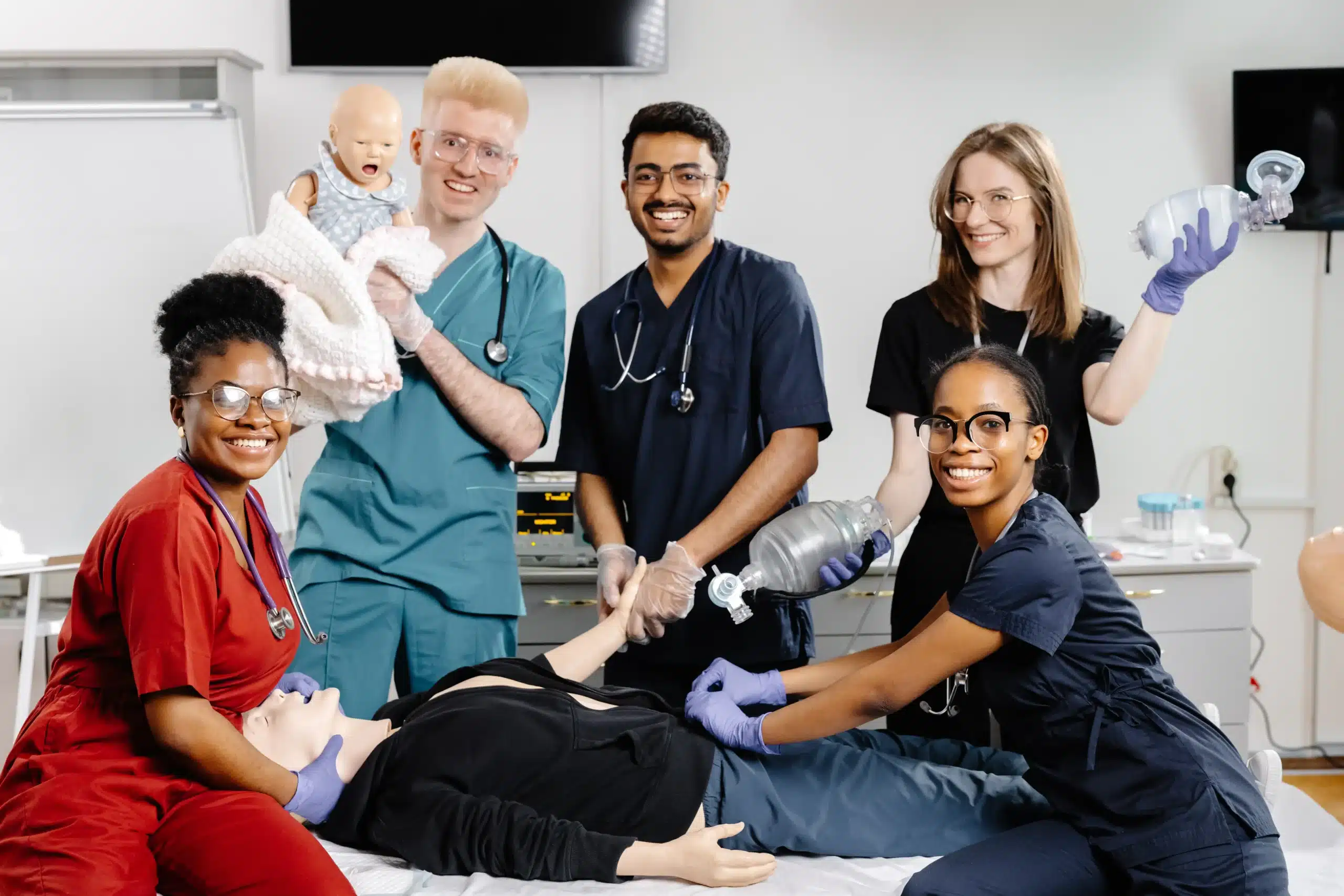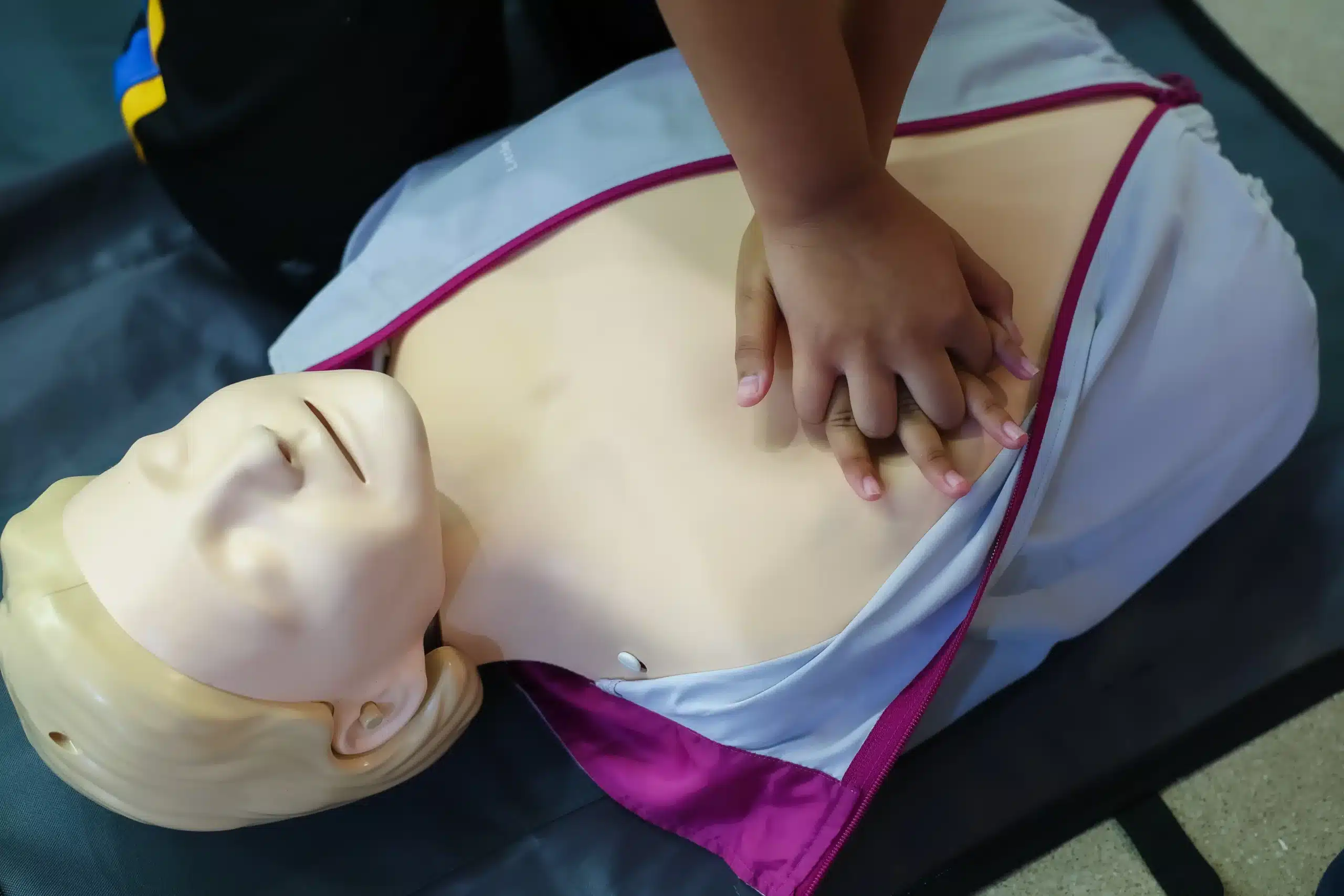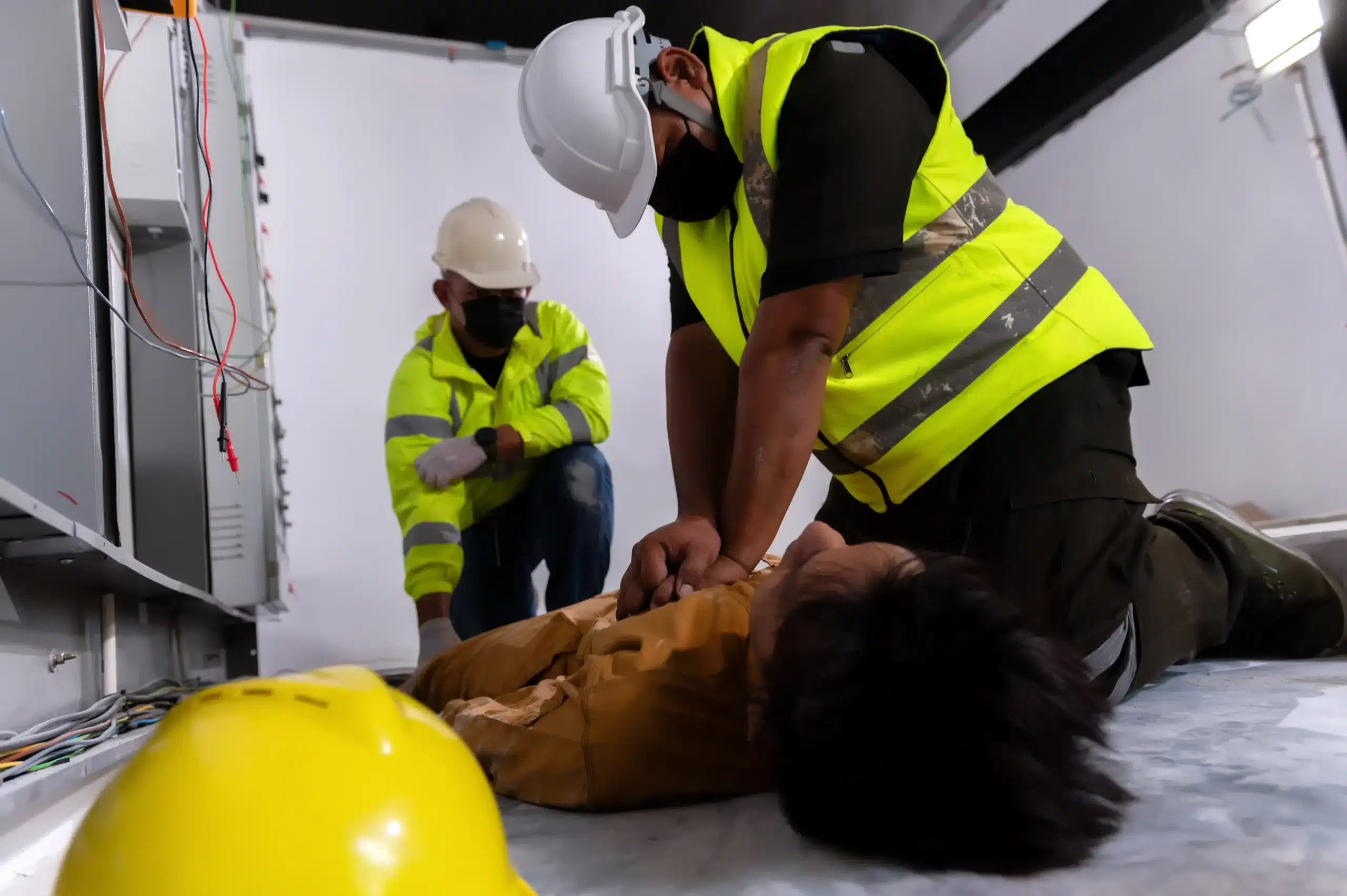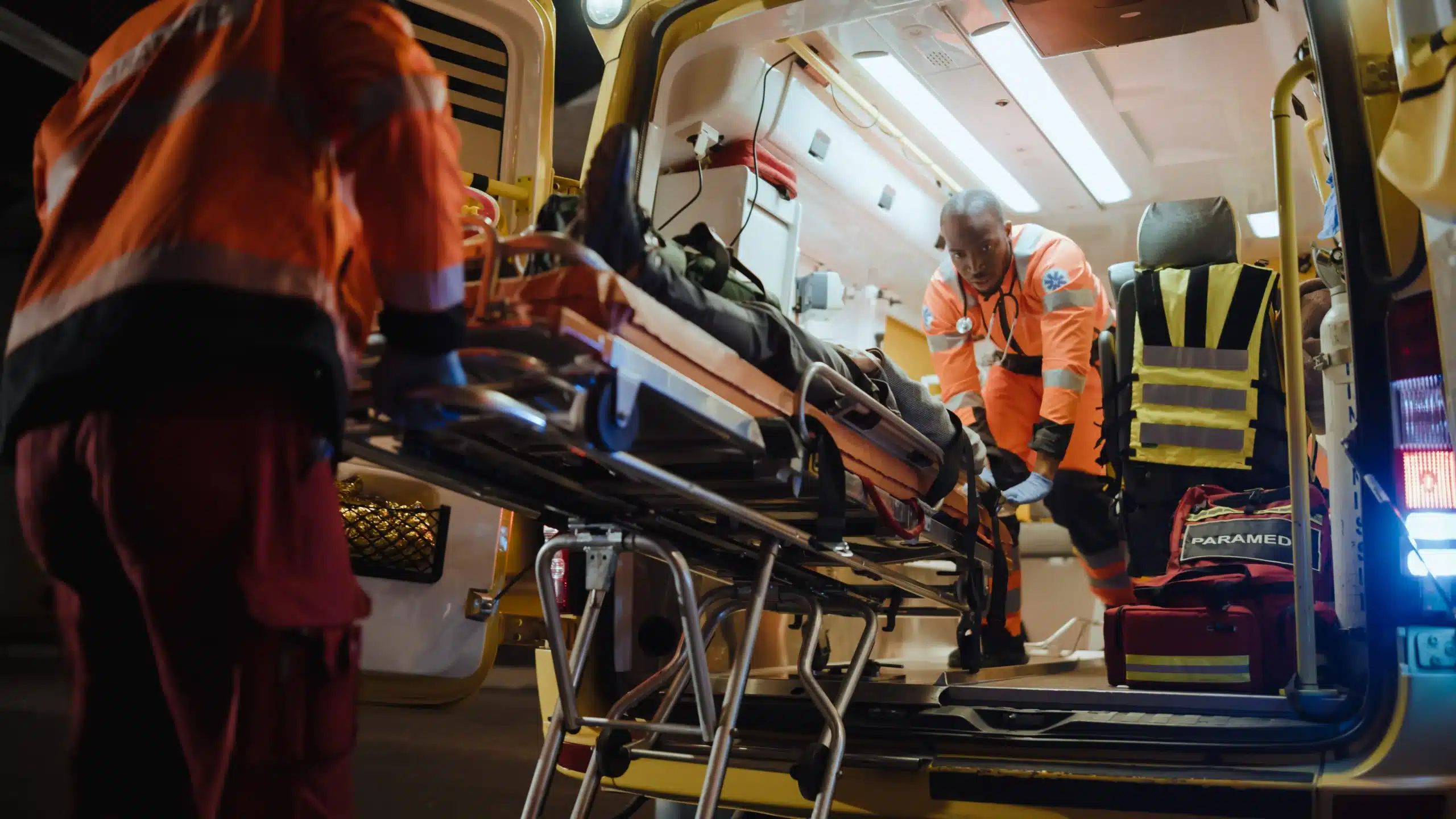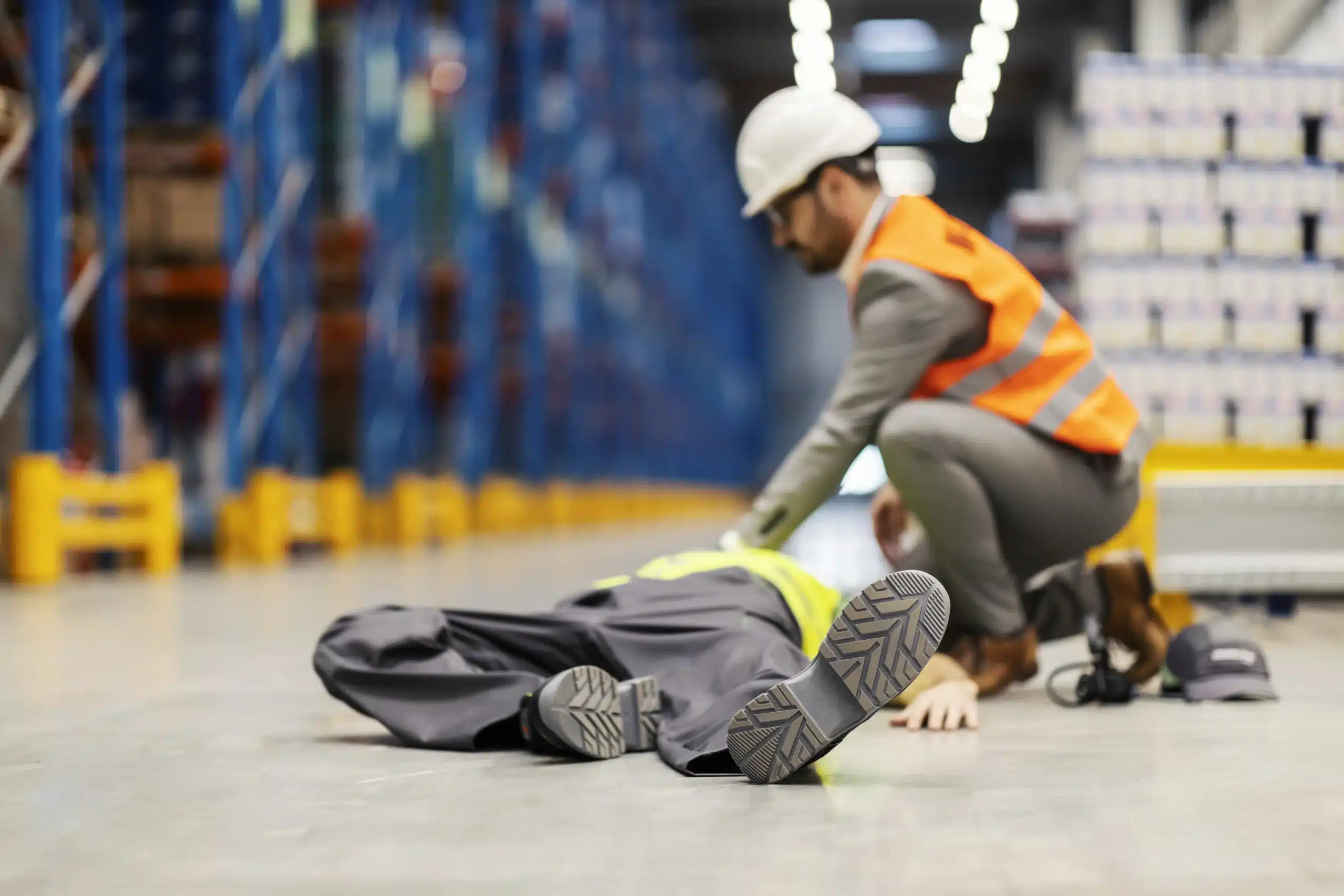Life can throw curveballs, and knowing how to handle emergencies is empowering. Emergency response training in Visalia equips you with the skills to confidently face unexpected situations, from minor injuries to major crises. This isn’t just about reacting; it’s about being prepared. Whether you’re a healthcare professional, a parent, or simply someone who wants to make a difference, this training provides a foundation of knowledge and practical skills that can make a real impact. This post explores the various types of emergency response training available in Visalia, the benefits of getting certified, and how it strengthens our community. We’ll cover everything from basic CPR and first aid to advanced life support, helping you find the right training to match your goals.
Key Takeaways
- Prepare for the unexpected with emergency response training: From basic first aid to advanced life support, the right training empowers you to handle emergencies effectively. Explore local courses in Visalia to develop these vital skills.
- Select a training provider that meets your needs: Consider factors like course content, certification, cost, and schedule flexibility. Research reputable providers like Safety Training Seminars, known for their comprehensive programs and commitment to customer service.
- Stay sharp and ready to respond: Maintain your skills through regular practice, recertification courses, and continuing education opportunities. Consistent upkeep ensures you can confidently act in a crisis.
What is Emergency Response Training in Visalia?
Emergency response training in Visalia prepares you for a range of emergencies, from everyday mishaps to large-scale disasters. These programs teach essential skills to handle situations like fires, earthquakes, floods, and medical crises. Think of it as a toolkit for navigating unexpected events, keeping yourself and those around you safe. The training covers those first crucial moments of an emergency, bridging the gap until professional help arrives.
Local organizations in Visalia offer a variety of courses tailored to different needs. You can find comprehensive programs covering CPR, first aid, and basic emergency care. These are helpful for anyone who wants to be more prepared, from healthcare professionals to community volunteers. Safety Training Seminars offers American Heart Association courses like CPR, BLS, ACLS, and PALS, providing nationally recognized certifications. For broader community preparedness, the City of Visalia offers resources and guidance on creating disaster supply kits and communication plans. Having these resources readily available ensures you’re not caught off guard when an emergency strikes.
Available Emergency Response Courses
Knowing what training courses are available is the first step in preparing yourself for an emergency. This section covers the range of emergency response courses offered in Visalia, from basic life support to specialized certifications.
CPR and First Aid Training
CPR and first aid training are fundamental skills everyone should consider learning. These courses provide the knowledge and practice you need to respond effectively to breathing and cardiac emergencies, injuries, and other medical situations. Safety Training Seminars offers American Heart Association CPR and first aid training in Visalia and can even come to your location. This makes getting certified convenient and accessible, whether you’re an individual, a group of friends, or a local business.
Basic Life Support (BLS)
Basic Life Support (BLS) certification goes a step further than standard CPR and first aid. It’s designed for healthcare providers and other professionals who need a more in-depth understanding of life-saving techniques. BLS courses cover advanced airway management, high-quality CPR, and effective team dynamics during resuscitation. BLS certification is often a job requirement for many healthcare roles and demonstrates a commitment to patient care.
Advanced Cardiovascular Life Support (ACLS)
For healthcare professionals dealing with adult cardiac emergencies, Advanced Cardiovascular Life Support (ACLS) training is essential. This advanced course builds upon BLS skills, focusing on the early recognition and management of cardiopulmonary arrest, stroke, and other acute cardiovascular conditions. ACLS certification emphasizes effective teamwork, communication, and critical thinking in high-pressure medical situations.
Pediatric Advanced Life Support (PALS)
Pediatric Advanced Life Support (PALS) is specifically designed for healthcare providers who care for infants and children. This course equips participants with the knowledge and skills to manage pediatric respiratory emergencies, cardiac arrest, and shock. PALS certification emphasizes the unique physiological differences between children and adults, ensuring appropriate and effective interventions.
Disaster Preparedness Courses
Beyond individual medical emergencies, disaster preparedness training is crucial for community resilience. These courses cover a wide range of topics, from basic first aid and triage to responding to natural disasters and large-scale emergencies. Disaster preparedness training is valuable for anyone, but especially for those in roles responsible for the safety of others, such as teachers, childcare providers, and community leaders. Preparing for potential disasters helps protect individuals, families, and entire communities.
Top Emergency Response Training Providers
Finding the right emergency response training provider is key to receiving quality instruction and obtaining a recognized certification. Here are some of the leading training providers in the Visalia area:
Safety Training Seminars
Safety Training Seminars offers a comprehensive range of American Heart Association courses, including BLS, ACLS, PALS, CPR, and First Aid. They also offer specialized courses like RQI and EMSA Health & Safety training for childcare providers. With a focus on customer service and affordability, they even have a Low Price Guarantee. Their flexible scheduling, including daily classes and on-site training options, makes them a convenient choice. Contact them to learn more about their course offerings and sign up for a BLS course.
Southern’s CPR & First Aid Training
Southern’s CPR & First Aid Training provides various CPR, first aid, and emergency care programs. They cater to individuals, volunteers, and healthcare professionals, offering tailored training solutions. Visit their website to learn more about their programs.
American Red Cross
The American Red Cross is a well-established provider of CPR and first aid training. Their certification is widely recognized and accepted. Find a class that fits your schedule and requirements.
Visalia Fire Department
The City of Visalia Fire Department offers specialized training courses, including PALS and ACLS, geared towards equipping individuals with advanced emergency response skills. Explore their training courses to enhance your expertise.
Clinical Training Institute
Clinical Training Institute is another reputable provider of CPR classes in Visalia. They offer various training options to meet different learning styles and needs. Search for
Benefits of Emergency Response Training for Healthcare Professionals
For healthcare professionals, emergency response training isn’t just beneficial—it’s essential. It equips you with the knowledge and skills to handle critical situations effectively, ultimately leading to better patient outcomes and a safer work environment. Let’s explore some key advantages:
Enhance Patient Safety
In healthcare, seconds can matter. Emergency response training empowers you to react swiftly and appropriately in emergencies, directly impacting patient safety. Whether administering CPR, controlling bleeding, or recognizing the signs of a stroke, your training can be the difference between life and death. High-quality training ensures you’re prepared to deliver the best possible care when it matters most.
Improve Team Coordination
Effective teamwork is crucial during emergencies. Training programs often incorporate simulations and scenarios that require coordinated responses, fostering better communication and collaboration among healthcare teams. When everyone knows their role and how to work together seamlessly, the overall response becomes more efficient and effective. This can significantly improve patient outcomes and minimize the risk of errors. CPR classes in Visalia emphasize this team-based approach.
Increase Confidence in Crisis Situations
Facing a medical emergency can be incredibly stressful. Proper training instills confidence in your abilities, allowing you to remain calm and focused under pressure. Knowing you have the skills to handle the situation reduces anxiety and allows you to make sound decisions, leading to more effective interventions. This focus on building confidence is a key component of many first aid and CPR training programs.
Comply with Regulations
Many healthcare roles require specific certifications in emergency response. Completing the necessary training ensures you meet these regulatory requirements and maintain your professional standing. Staying up-to-date with the latest guidelines and best practices demonstrates your commitment to providing high-quality care and adhering to industry standards. Be sure to check the specific requirements for your role.
Develop Skills Continuously
The healthcare field is constantly evolving. Regular emergency response training allows you to stay current with the latest techniques, technologies, and procedures. Continuous professional development in this area not only enhances your skills but also demonstrates your dedication to lifelong learning and providing the best possible patient care. Explore the class calendar to find courses that fit your schedule and keep your skills sharp.
Training Program Costs
Getting certified in life-saving skills is an investment in yourself and your community. Understanding the costs associated with emergency response training can help you plan your training. Fortunately, in Visalia, there are options to fit every budget.
Course Pricing Structures
Training costs typically vary based on the type of course and the certification level. An informational CPR course, for example, will likely cost less than a course leading to CPR certification. Similarly, more advanced courses like ACLS or PALS usually have a higher price tag than basic CPR and first aid. Check directly with the training provider for their specific pricing. Many providers, like Safety Training Seminars, offer transparent pricing on their websites.
Group Booking Discounts
If you’re training with a group, such as colleagues or a community organization, inquire about group discounts. Many training centers offer reduced rates for group bookings, making it a cost-effective way to train multiple people at once. This can be particularly beneficial for businesses wanting to certify their employees in first aid or other emergency response skills. Check with providers like Safety Training Seminars about potential discounts.
Low Price Guarantee Options
Look for training providers that offer a low price guarantee. This ensures you’re getting the best possible value for your training. Safety Training Seminars offers a Low Price Guarantee in Tulare County, giving you confidence that you’re receiving quality training at a competitive price. Compare prices and ask providers about any guarantees they offer. Knowing your options helps you make informed decisions about your training investment.
Choose the Right Emergency Response Course
Finding the right emergency response course boils down to understanding your needs, comparing available options, and picking a reputable provider. Let’s break down each step.
Assess Your Needs
Before you jump into a course, think about why you need emergency response training. Are you a healthcare provider, a childcare worker, or someone who simply wants to be prepared for any situation? A basic CPR and First Aid class is a great starting point for general knowledge. Healthcare professionals, however, might need more advanced training like ACLS or PALS. Understanding your specific requirements will guide you toward the appropriate level of training.
Compare Courses and Certifications
Once you know what kind of training you need, compare courses. Look at what each course covers. Some focus solely on CPR, while others include AED training and First Aid certification. Also, consider the cost. A shorter informational session will typically be less expensive than a comprehensive certification course. If you’re training a team, ask about group discounts—many providers offer reduced rates for multiple participants. Check our Low Price Guarantee to ensure you’re getting the best value.
Evaluate Training Provider Reputation
The quality of your training depends heavily on the provider you choose. Look for established providers with a strong track record. Safety Training Seminars is known for its commitment to excellent customer service and offers American Heart Association-certified courses. Reading reviews and testimonials can also give you valuable insights into a provider’s teaching style and effectiveness. A reputable provider will be transparent about their certifications, instructor qualifications, and course content.
The Training Process: What to Expect
Attending an emergency response training course can feel a little daunting, but knowing what to expect can ease your mind. Here’s a general overview of the training process, from the first class to ongoing support.
Course Duration and Format
Most CPR and First Aid classes follow a blended learning approach. You’ll typically start with online coursework covering fundamental concepts and essential skills. This self-paced portion allows you to learn the basics on your own time. Then, you’ll attend an in-person skills session for hands-on training and assessment. This combination of online learning and practical application reinforces your understanding and prepares you for real-world scenarios. Check with your chosen provider, like Safety Training Seminars, for specifics on course duration and format. They offer a variety of courses, including BLS certification.
Hands-on Practice
The core of effective emergency response training lies in hands-on practice. During the in-person skills session, you’ll work with certified instructors and practice techniques on mannequins and other training equipment. This practical experience is crucial for building muscle memory and confidence in your abilities. Providers, such as Southern’s CPR & First Aid Training, emphasize this hands-on approach to ensure you’re well-prepared for actual emergencies.
Certification Process
After completing the required coursework and demonstrating proficiency in the skills session, you’ll receive your certification. This certification validates your training and signifies your readiness to respond to emergencies. Many training centers offer certifications from nationally recognized organizations like the American Heart Association (AHA). These certifications, often valid for two years, may cover various areas, including BLS, CPR, and First Aid. For those interested in more advanced training, consider exploring RQI classes as well.
Post-Training Support
Your learning journey doesn’t end with certification. Reputable training providers offer ongoing support to their students. This might include access to refresher materials, updates on new guidelines, or opportunities for continuing education. This continued support ensures you stay up-to-date with the latest best practices in emergency response. Look for providers who offer this commitment to ongoing support, as it demonstrates their dedication to your long-term success. You can always reach out to CPR Visalia for more information about their post-training resources and their low price guarantee. They also offer a convenient way to find BLS courses in Visalia.
Maintain Your Emergency Response Skills
Once you’ve completed your initial emergency response training, staying sharp and ready to respond is crucial. Regularly refreshing your skills ensures you can act quickly and confidently in a real emergency. Here’s how to maintain your knowledge and skills:
Recertification Requirements
Certifications for courses like BLS and CPR are typically valid for two years. Check with your certifying organization, often the American Heart Association, for specific recertification requirements and timelines. Safety Training Seminars in Visalia offers convenient BLS courses to help you stay current with your certification. Don’t let your skills lapse—stay prepared.
Ongoing Education
Beyond recertification, consider ongoing education to refine your techniques and stay informed on the latest emergency response procedures. Look for workshops, refresher courses, and advanced training opportunities in Visalia. Safety Training Seminars offers various courses, including RQI classes, to help you expand your skill set. Continuous learning is key to providing effective care in an emergency.
Practice Scenarios
Regular practice is essential for maintaining muscle memory and confident decision-making in high-pressure situations. Consider participating in mock drills or simulations to practice your skills in a safe and controlled environment. Many training providers in Visalia incorporate practice scenarios into their courses, giving you the opportunity to apply your knowledge and receive feedback. Even practicing basic techniques with friends or family can reinforce your training and improve your response time in a real emergency. Consistent practice is the best way to ensure you’re ready to act when it matters most. For affordable options, check out Safety Training Seminars’ Low Price Guarantee. They offer competitive pricing on all courses, making it easier to stay prepared. Contact them to learn more.
Impact of Emergency Response Training on the Visalia Community
Having residents trained in emergency response dramatically strengthens our community’s overall safety net. It empowers individuals to confidently respond to crises, creating a ripple effect that benefits everyone.
Enhance Overall Safety
CPR and First Aid training equips individuals with the skills to respond effectively during emergencies. These skills can make a profound difference, potentially saving lives and minimizing injuries. When more people in Visalia are trained, our community becomes better prepared to handle emergencies, fostering a greater sense of security. This proactive approach creates a more resilient community, ready to face unexpected challenges. Consider exploring available BLS courses in Visalia to contribute to this community-wide effort.
Support Local Businesses and Healthcare
Investing in emergency response training also supports local businesses and healthcare systems. Businesses with trained employees can respond more effectively to workplace incidents, minimizing downtime and ensuring a safer work environment. This training also benefits our local healthcare providers. When more people can handle initial emergency responses, it frees up valuable resources for healthcare professionals to focus on more complex medical needs. Southern’s CPR & First Aid Training is a great example of a local business dedicated to providing these essential skills.
Create a Culture of Preparedness
Promoting emergency response training helps cultivate a culture of preparedness within the Visalia community. Trained individuals become more aware of potential risks and how to mitigate them. This awareness extends beyond individual preparedness and encourages families and communities to develop emergency plans. The City of Visalia emphasizes family emergency planning, underscoring the importance of this community-wide approach. By working together, we can create a safer and more resilient Visalia.
Related Articles
- American Red Cross Visalia: Your Guide to Services & Volunteering – Visalia CPR Classes
- CPR Training in Visalia: Your Complete Guide – Visalia CPR Classes
- CPR Courses in Visalia: Your Complete Guide – Visalia CPR Classes
- CPR & First-aid Classes in Visalia, CA – Visalia CPR Classes
- BLS Certification in Tulare County: Your Complete Guide – Visalia CPR Classes
Frequently Asked Questions
What’s the difference between BLS and CPR certification?
CPR is a basic life-saving technique that anyone can learn. BLS certification builds upon CPR, adding advanced skills like airway management and the use of AEDs. It’s designed for healthcare providers and those in professional rescuer roles. Think of BLS as a more comprehensive and specialized level of CPR training.
How much does emergency response training cost in Visalia?
The cost varies depending on the course and the training provider. Basic CPR and First Aid classes are generally more affordable than advanced certifications like ACLS and PALS. Many providers offer group discounts, so be sure to ask about those if you’re training with friends, family, or colleagues. Safety Training Seminars offers a Low Price Guarantee, so you can feel confident you’re getting a good value.
How long does it take to get certified?
Many courses now use a blended learning format, combining online coursework with in-person skills sessions. The online portion allows you to learn at your own pace, while the in-person session focuses on hands-on practice and assessment. The total time commitment varies depending on the specific course and provider, but you can often complete the process within a few days.
What if I’m nervous about the hands-on portion of the training?
It’s completely normal to feel a little apprehensive about the hands-on part. Certified instructors create a supportive learning environment where you can practice essential skills without pressure. They’ll guide you through each step, provide feedback, and answer any questions you have. The goal is to build your confidence and ensure you’re comfortable using your skills in a real emergency.
How can I stay up-to-date with my emergency response skills after getting certified?
Most certifications are valid for two years. To maintain your skills, plan to recertify before your current certification expires. Look for refresher courses or continuing education opportunities to stay sharp and learn the latest techniques. Even practicing key skills periodically with friends or family can help reinforce your training and keep you prepared.
